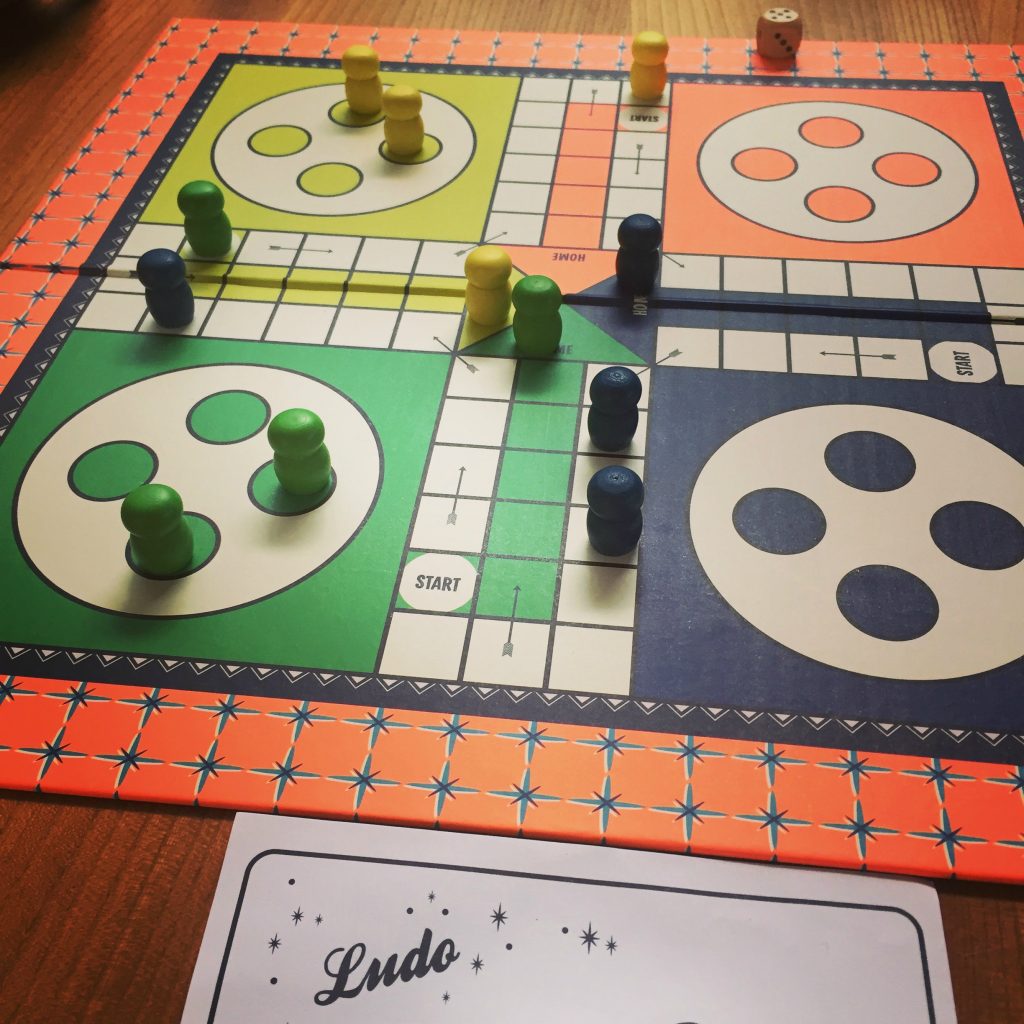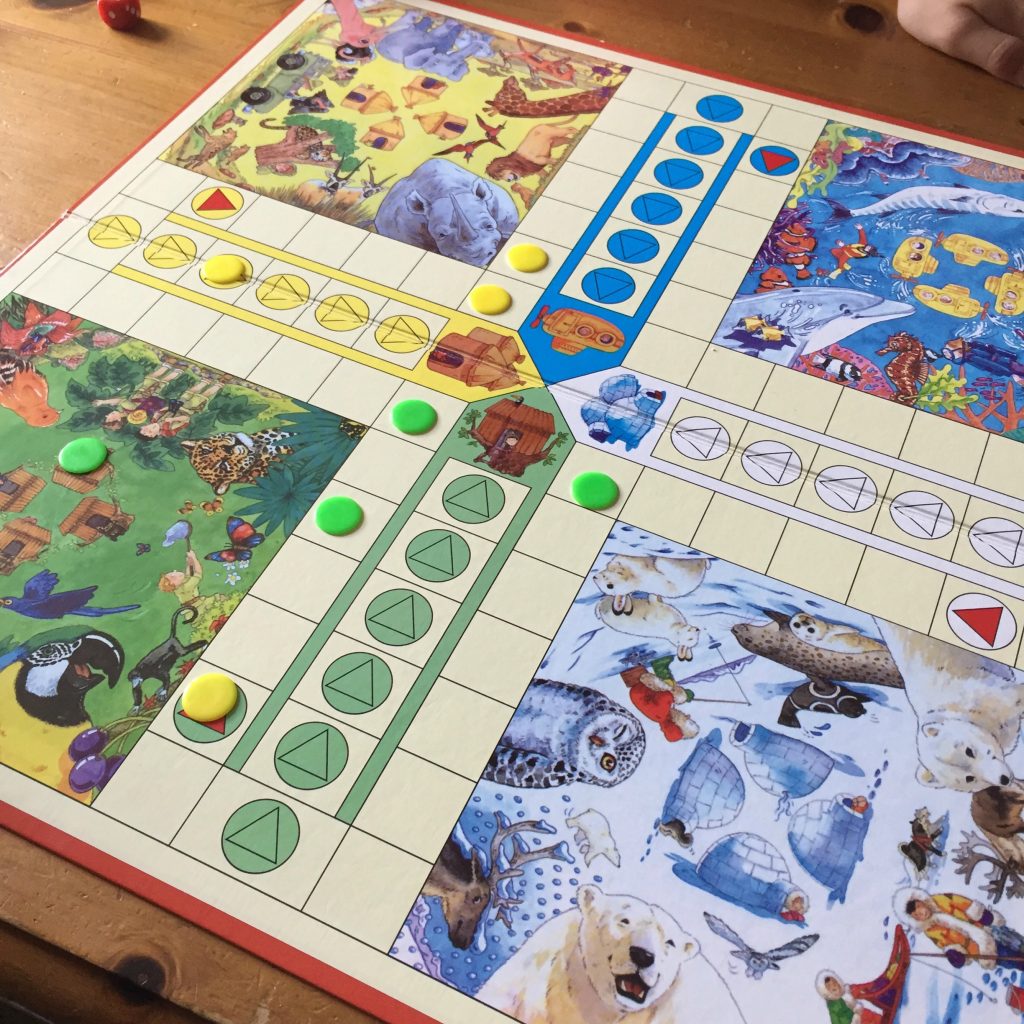Ever since he realised that there was a second game on the back of the Snakes and Ladders board, Master C has become slightly obsessed with Ludo. It’s one of those games that I remember playing as a child as part of a compendium of games, but yet I don’t think I’ve touched it since childhood.
Ludo’s origins
I do vaguely remember that Ludo is actually based on the Indian game Pachisi. Described by some as the “national game of India”, Pachisi is a cross and circle game (otherwise known as a race game) in which players move around the board, in a race against each other. First played in medieval India, the number of spaces moved was determined by throwing six or seven cowrie shells and whether the shells landed with the opening upwards or not gave you a score.
Game play
We’ve obviously moved on since then, and Ludo is played with a single die now and up to four players. Each player has four counters and each has a corner of the board as their initial home position.
If a player rolls a six then they move one of their counters into their starting position, and from there a second roll of the die determines how many spaces they need to move. Players then race around the cross shape on the board, until they get back to almost where they started. Then they have to head up their coloured strait towards “home” in the centre of the board.
The aim is to get all four of their coloured counters home. But it’s not as easy as it may initially seem!
The twist
With players having all four counters, and different starting times for them, it ends up with everyones counters overlapping on the board. Even more so if you have three or four players. If you land on a square that already has a player’s counter on it then you knock them off the board and they have to go back to their home position, and await a six to start again.
It’s also possible to block other players by getting two of your counters on adjacent squares. If you manage this then it means that other plays can not knock you off, but also can’t get past you.
The only place on the board where you are really safe is on your home strait, as then no one else can catch you.
The kids’ reactions
As I mentioned when I wrote about Snakes and Ladders, Ludo is a much more complicated game, as you an play it with a huge amount of strategy. It’s up to you which counters you move when and whether you aim to knock the opposition off the board or not with certain moves. Realistically, it’s a huge step up from Snakes and Ladders, but at the same time it’s a perfect game for introducing strategy to children.
Master C got so excited the first time that he managed to knock me off the board. He also takes a great thrill from being able to block other players by getting two of his counters together. He may not yet understand all the strategy behind why you might do either of these things, but it’s a brilliant way to get him starting to think about them.
It’s also helped his mental maths come on even faster. As well as counting out each move of his own, he’s also been working out what he needs to roll to knock other players off the board.
Ludo around the world
I admit that I hadn’t really thought much about Ludo being played elsewhere until I innocently put a picture of the board up on my Facebook page and a Dutch friend commented.
He pointed out that Ludo looked much like a game in The Netherlands called “mens erger je niet”, which roughly translates as “Man, don’t get annoyed”. Intrigued I went off to do a bit of research and it seems that in German Ludo is called “Man, don’t get upset”. Ludo also has similar names in Albanian, Bulgarian, Croatian, Czech, Macedonian, Russian, Serbian, Slovak, Slovene, and Turkish. In Greece there is also a reference to players behaviour in the fact that they call it “Grumbler” and Italian just call it “Don’t get upset”.
I had no idea that what I had just thought of as a simple game could bring about such a response from players! And I Guess it just puzzles me even more as to why it so often seems to be found on the reverse of a game as innocent as Snakes and Ladders!
A variety of different Ludo sets (with and without Snakes and Ladders) are available to buy online here.
Disclaimer: This post contains affiliate links.



Leave a Reply